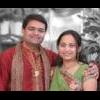-
Posts
14,009 -
Joined
-
Last visited
Reputation Activity
-

-
 Saddle Bronc got a reaction from Susita in Slum-dweller hoping to end hunger in India through catering-business he founded
Saddle Bronc got a reaction from Susita in Slum-dweller hoping to end hunger in India through catering-business he founded
http://www.bbc.co.uk/news/business-16248442
My Business: The slum dweller who founded a food chain
2011/12/20 19:00 ET
What makes an entrepreneur? Parul Agrawal, of the BBC Hindu Service, and Heather Sharp hear from Sarath Babu, 31, a former slum dweller who wants to help end hunger in India by employing 100,000 people in the catering business he founded.
The bamboo walls have been replaced with brick, and what was once a slum has improved over the years.
But Sarath Babu, 31, still lives with his mother in the hut she raised him in, in the Indian city of Chennai.
Despite his shiny shirt, Blackberry and beloved Chevrolet, he has few of the trappings of a graduate of one India's top management schools - despite the fact he now employs 250 people in his fast-growing catering empire.
Sarath still lives in the same hut that his mother raised him in
Born to a family with next to nothing, Sarath dreams of an India without hunger.
He has set himself the target of providing for half a million people, by creating 100,000 (known as one lakh) jobs.
"I give a job, and that person takes care of four to five people - so I take care of five lakh people directly," he says.
He still regularly visits a slum similar to the one where he and his sister used to sell idlis - steamed rice cakes - made by his mother.
She became the sole breadwinner for five children after Sarath's father died.
It was her commitment to raising the money to put him through an English-language school that opened the door to a different life.
At the school he met middle-class children, and noticed that they had several sets of clothes - while he wore one school uniform for three years.
He also discovered his ability to come top of the class.
"I realised that without involving my mother's effort, or my teacher's effort - only with my effort - I could get some recognition and this didn't require money," he said.
And from then on, he began studying hard.
Sarath eventually gained entry - and a scholarship to cover some costs - to BITS Pilani, one of India's most prestigious and highly selective universities.
After working for a software company for three years to pay off university debts, he then went on to complete an MBA at another elite institution, the Indian Institute of Management (IIM) in Ahmedabad.
'Dark and challenging'
But when offers of well-paid jobs finally began to roll in, they brought with them a dilemma - which Sarath says he visualised as two doors.
One represented all that wealth had to offer, the other his long-standing dream to start a business that would transform the lives of those who, like him, started out poor.
To the first door, he says he said: "Me and my family suffered because of you, today I know that I can have you, but I don't need you."
Instead, he chose the second option. "I knew that it was going to be really dark and really challenging, but I knew at the end of this path it's going to be really beautiful - so I thought I should stick to my dream."
Sarath launched Foodking in 2006, supplying snacks to banks, software firms and other corporates, with just 2,000 rupees (£24; $38) to fund the first month.
But with his impressive academic pedigree, he was soon able to secure a bank loan of 100,000 rupees (£1,205; $1,890), and employed eight to 10 workers.
The expansion continued, and he now has seven outlets and an annual turnover of $1.3m.
The first year was tough, however. At one point, Sarath missed a train and found himself forced to sleep on a station platform as he could not afford a bed for the night. He considered giving up.
"But then I said to myself, so what if you are an IIM-Ahmadabad guy? Can't you sleep on the platform - there are 300 other people sleeping on the platform - let them all sleep in homes and then you can think about yourself...
"Until then, you think about the business, you think about them."
And Sarath's drive remains strong.
He wants to have 100 outlets by the end of this year - and 5,000 across the state eventually.
Foodking aims to offer good food at affordable prices - as well as to create jobs for the poor
Family loans
He already gives lectures at schools and business institutes, and spends time encouraging children in a local slum to continue studying.
And he hopes to inspire 1,000 entrepreneurs across the state, who too would go on to create employment opportunities for others.
Sarath's approach is clearly shaped by his humble beginnings.
He is determined to provide affordable, good quality food. Foodking's meals cost 20-45 rupees (25p-54p; $0.37-0.84) each - which would more usually buy only fast food.
To keep prices low, premises are simple. And while Sarath is happy to pitch in and help the workers out, he's tough on waste, challenging staff over unused chopped vegetables and taps left running.
Sarath's relatives loaned him money for his university fees, while his sister pawned her wedding jewellery to help cover the cost of his MBA.
His gratitude is evident, to them and even more deeply for his mother's sacrifices - as is his determination to provide for his family.
But although he has been offered salaries of up to $33,000 (£21,050) a year - highly paid in Indian terms - he says he never saw turning down employment and starting the business as a risk.
"What is risk? It's risk to lifestyle. Having come from the slum, with absolutely nothing… there is absolutely no risk for me."
-
 Saddle Bronc got a reaction from Nagishkaw in Pamela Anderson made the mother of Jesus for a Christmas special in Canadian television
Saddle Bronc got a reaction from Nagishkaw in Pamela Anderson made the mother of Jesus for a Christmas special in Canadian television
In theory, we could say "it's acting"--but that fails here (Anderson was never above D+ grade in that area). -
 Saddle Bronc got a reaction from sheeshkabelle in Taps for Col. Sherman T. Potter; Harry Morgan passes away @ 96
Saddle Bronc got a reaction from sheeshkabelle in Taps for Col. Sherman T. Potter; Harry Morgan passes away @ 96
http://www.nytimes.com/2011/12/08/arts/television/harry-morgan-mash-and-dragnet-actor-dies-at-96.html?_r=4
Harry Morgan as Col. Sherman T. Potter on "M*A*S*H."
Harry Morgan, right, with Jack Webb in "Dragnet" in 1967.
Harry Morgan, Colonel Potter on ‘M*A*S*H,’ Dies at 96
Michael Pollak
2011/12/07
Harry Morgan, the prolific character actor best known for playing the acerbic but kindly Colonel Potter in the long-running television series “M*A*S*H,” died on Wednesday morning at his home in Los Angeles. He was 96.
His son Charles confirmed his death, saying Mr. Morgan had been treated for pneumonia recently.
In more than 100 movies, Mr. Morgan played Western bad guys, characters with names like Rocky and Shorty, loyal sidekicks, judges, sheriffs, soldiers, thugs and police chiefs.
On television, he played
with a phlegmatic but light touch to Jack Webb’s always-by-the-book Sgt. Joe Friday in the updated “ ,” from 1967 to 1970. He starred as Pete Porter, a harried husband, in the situation comedy “ ” (1960-62), reprising a role he had played on “December Bride” (1954-59). He was also a regular on “The Richard Boone Show” (1963-64), “Kentucky Jones” (1964-65), “The D.A.” (1971-72), “Hec Ramsey” (1972-74) and “Blacke’s Magic” (1986).But to many fans he was first and foremost Col. Sherman T. Potter, commander of the 4077th Mobile Army Surgical Hospital unit in Korea. With a wry smile, flat voice and sharp humor, Mr. Morgan played Colonel Potter from 1975 to 1983, when “M*A*S*H” went off the air. He replaced McLean Stevenson , who had quit the series, moving into the role on the strength of his performance as a crazed major general in an early episode.
In an interview for the Archive of American Television, Mr. Morgan said of his “M*A*S*H” character: “He was firm. He was a good officer and he had a good sense of humor. I think it’s the best part I ever had.”
Colonel Potter’s office had several personal touches. The picture on his desk was of Mr. Morgan’s wife, Eileen Detchon. To relax, the colonel liked to paint and look after his horse, Sophie — a sort of inside joke, since the real Harry Morgan raised quarter horses on a ranch in Santa Rosa. Sophie, to whom Colonel Potter says goodbye in the final episode, was Mr. Morgan’s own horse.
In 1980 his Colonel Potter earned him an Emmy Award as best supporting actor in a comedy series. During the shooting of the final episode, he was asked about his feelings. “Sadness and an aching heart,” he replied.
Harry Morgan was born Harry Bratsburg on April 10, 1915, in Detroit. His parents were Norwegian immigrants. After graduating from Muskegon High School, where he played varsity football and was senior class president, he intended to become a lawyer, but debating classes in his pre-law major at the University of Chicago stimulated his interest in the theater.
He made his professional acting debut in a summer stock production of “At Mrs. Beam’s” in Mount Kisco, N.Y., and his Broadway debut in 1937 in the original production of “Golden Boy,” starring Luther Adler, in a cast that also included Karl Malden.
After moving to California in 1942, he was spotted by a talent scout in a Santa Barbara stock company’s production of William Saroyan’s one-act play “Hello Out There.” Signing a contract with 20th Century Fox, he originally used the screen name Henry Morgan, but changed Henry to Harry in the 1950s to avoid confusion with the radio and television humorist Henry Morgan.
Mr. Morgan attracted attention almost immediately. In “
” (1943), which starred Henry Fonda, he was praised for his portrayal of a drifter caught up in a lynching in a Western town. Reviewing “A Bell for Adano” (1945), based on John Hersey’s novel about the Army in a liberated Italian town, Bosley Crowther wrote in The New York Times that Mr. Morgan was “crude and amusing as the captain of M.P.’s.”He went on to appear in “All My Sons” (1948), based on the Arthur Miller play, with Edward G. Robinson and Burt Lancaster; “The Big Clock” (1948), in which he played a silent, menacing bodyguard to Charles Laughton; “Yellow Sky” (1949), with Gregory Peck and Anne Baxter; and the critically praised western “High Noon” (1952), with Gary Cooper. Among his other notable films were “
” (1956), with Marlon Brando and Glenn Ford, and “Inherit the Wind” (1960), with Spencer Tracy and Fredric March, in which he played a small-town Tennessee judge hearing arguments about evolution in the fictionalized version of the Scopes “monkey trial.” In “ ” (1962) he played Gen. Ulysses S. Grant.After a personable performance as Glenn Miller’s pianist, Chummy MacGregor, in “The Glenn Miller Story” (1954), starring James Stewart, he often played softer characters as well as his trademark hard-bitten tough guys. There were eventually a number of comedies on his résumé, among them “John Goldfarb, Please Come Home” (1965), with Shirley MacLaine and Peter Ustinov; “The Flim-Flam Man” (1967), with George C. Scott; “Support Your Local Sheriff!” (1969), with James Garner and Walter Brennan; and “The Apple Dumpling Gang” (1975), a Disney movie with Tim Conway and Don Knotts.
He returned as Bill Gannon, by now promoted to captain, in the 1987 movie “
,” a comedy remake of the series starring Dan Aykroyd and Tom Hanks.Mr. Morgan’s television credits were prodigious. He once estimated that in one show or another, he was seen in prime time for 35 straight years. Regarded as one of the busiest actors in the medium, he had continuing roles in at least 10 series, which, combined with his guest appearances, amounted to hundreds of episodes. He reprised the role of Sherman Potter in “
” (1983-85), a short-lived spinoff.Among the later shows on which he appeared as a guest star were “The Love Boat,” “3rd Rock From the Sun,” “You Can’t Take It With You,” “Murder, She Wrote” and “The Jeff Foxworthy Show.”
Mr. Morgan’s first wife, Eileen Detchon, died in 1985 after 45 years of marriage. He is survived by his wife, Barbara Bushman, whom he married in 1986; three sons from his first marriage, Christopher, Charles and Paul; and eight grandchildren. A fourth son, Daniel, died in 1989. Mr. Morgan lived in the Brentwood section of Los Angeles.
His son Charles, a lawyer in Los Angeles, said in a telephone interview that he would marvel at his father’s photographic memory. “My dad would read a script the way somebody else would read Time magazine and put it down and be on the set the next day,” he said.
But Harry Morgan never sat as a guest on a talk show, Charles Morgan said; it did not seem appropriate or necessary. “Appearing on a talk show to focus on himself because he was Harry Morgan,” he said, “was not nearly as natural as appearing in a role as Pete Porter or Bill Gannon or Colonel Potter, or as the cowboy drifter who wandered into town with Henry Fonda and got wrapped up in a vigilante brigade in ‘Ox-Bow Incident.’ ”
-
 Saddle Bronc got a reaction from Nagishkaw in Pakistani officials ban texting words they deem too offensive to Islam including Jesus, Christ, Satan, Nude, and "Athlete's Foot"
Saddle Bronc got a reaction from Nagishkaw in Pakistani officials ban texting words they deem too offensive to Islam including Jesus, Christ, Satan, Nude, and "Athlete's Foot"
Translation: the only terms which will be allowed eventually are military terms considered glorious--as the order comes from (who else) Kayani!
-
 Saddle Bronc got a reaction from I AM NOT THAT GUY in A Majority of Democrats (52%) Seldom or Never Go to Church, Says Gallup
Saddle Bronc got a reaction from I AM NOT THAT GUY in A Majority of Democrats (52%) Seldom or Never Go to Church, Says Gallup
-2
I attend church regularly, but am neither rePublican nor DemocRat.
-
 Saddle Bronc got a reaction from Nagishkaw in Pregnant mom says sandwich arrest was 'horrifying'
Saddle Bronc got a reaction from Nagishkaw in Pregnant mom says sandwich arrest was 'horrifying'
No, maybe I should see it (what I know of Safeway unfortunately is from actual observation in Calgary over 20+ years; and I have not yet seen another grocer quite as bad--and that includes such ones as Sav-A-Lot, where you expect zero-service) -
 Saddle Bronc got a reaction from Nagishkaw in U.S. Jewish group appeals against placing 'Jerusalem, Israel' on passports
Saddle Bronc got a reaction from Nagishkaw in U.S. Jewish group appeals against placing 'Jerusalem, Israel' on passports
Meaningless case-basis--since it is possible to leave birthplace blank on passport!
-
 Saddle Bronc got a reaction from Brother Hesekiel in Gingrich says atheists can’t be trusted, disregards 50 MILLION secular Americans
Saddle Bronc got a reaction from Brother Hesekiel in Gingrich says atheists can’t be trusted, disregards 50 MILLION secular Americans
Note: secularist is NOT same as atheist--as it must (by definition) include agnostic (atheist, by definition assumes knowing there is no god as against agnostic who by definition admits not knowing whether there is a god) and not-particularly-religious. Ergo, atheists form far less than 15%.
-
 Saddle Bronc got a reaction from Nagishkaw in Palestinian internet & phone systems "hacked" and cut
Saddle Bronc got a reaction from Nagishkaw in Palestinian internet & phone systems "hacked" and cut
http://www.bbc.co.uk/news/world-middle-east-15542820
'Hackers' cut Palestinian phone and internet systems
Jon Donnison BBC News, Ramallah 2011/11/01 10:54 ET
Palestinian business will be badly affected by a lengthy loss of access to the phone and internet
The main phone network in the West Bank and Gaza has suffered a sustained attack by computer hackers, the Palestinian Authority (PA) says.
It says most of the Palestinian territory has lost internet service.
PA spokesman Ghassan Ghattib said the attacks started in the morning and came from multiple sources around the world.
He said he did not know if the hacking was linked to the Palestinian leadership's successful bid to get membership of Unesco on Monday.
The move by the UN's cultural and scientific organisation was strongly criticised by Israel and the United States.
The US immediately announced it was cutting off all of its funding to UN body.
Prolonged lack of access to the internet would prove costly to many Palestinian businesses.
The PA says the crash has been caused by computer hackers sabotaging the Paltel telephone network. Engineers are working to resolve the problem.
-
 Saddle Bronc got a reaction from Nagishkaw in In Holy Land, changed Christian world
Saddle Bronc got a reaction from Nagishkaw in In Holy Land, changed Christian world
http://www.usatoday.com/news/religion/story/2011-10-28/israel-changing-christianity/50979548/1
In the Holy Land, a changed Christian world
2011/10/28 16:40 ET
Filipino Christian worshippers attend mass at the Ratisbonne monastery in downtown Jerusalem.
JAFFA, Israel (AP) – The schedules for Mass at the two Roman Catholic churches in Jaffa, on Israel's Mediterranean coast, reveal a change that has dramatically, if quietly, altered the face of Christianity in the Holy Land.
The two Masses in Arabic for the town's native Arab Christian population are outnumbered by four in English, attended mainly by Filipina caregivers. Then there are others in Spanish, for South Americans; French, for African migrants; three South Asian languages, including Konkani, spoken in the Indian district of Goa; and, for a generation of Christians raised among Israel's Jewish majority, Hebrew.
In September, a colorful celebration for Indian Catholics alone drew 2,000 people. That's twice the total number of native Catholics in the parish.
For centuries, Christianity here meant the ancient communities of Christian Arabs. They were here when Israel was created around them in 1948, and they have kept their distinct identity within the Jewish state since. The past two decades, however, have seen one of the most significant influxes of Christians into the Holy Land since the Crusades, and it has created a wholly new Christian landscape shaped by the realities of Israel.
The newcomers include guest workers from dozens of different countries who provide the economy with cheap labor, and asylum-seekers from Sudan, Eritrea and elsewhere in Africa who sneak across the border from Egypt. And for the first time, there is a significant population of non-Arab Christian Israeli citizens, mainly immigrants from the former Soviet Union who, unlike Arabs, are fully assimilated into the Jewish Israeli mainstream.
Their presence has created new challenges for local churches that are simultaneously, like churches across the Mideast, facing the uncertain future of their local flocks. The numbers of Israel's 110,000 native Arab Christians have largely stagnated: They're not shrinking, but neither are they growing, as many young people leave for the West, squeezed by the conflict between Jews and Muslims and party to the general sense of neglect shared by Israel's Arab citizens.
Father Ramzi Sidawi, an Arab Catholic from Jerusalem, is the parish priest in Jaffa. Outside the church windows, he said, he now listens every day to children from Africa and the Philippines playing in Hebrew, the language of their schools and their parents' employers.
"You have to divide yourself, switch between languages. We have to serve everybody," he said. "The biggest challenge is to maintain the community united and not divided."
That's a difficult task, considering the gulf of language and culture that divides the newcomers from each other and from Arab Christians. There don't seem to be overt frictions or resentments, but in practice, Sidawi said, there is little contact among them beyond shared Masses on Christmas and other festivals. The non-Arabs who attend church in Jaffa, for example, live elsewhere, mainly in foreign worker-dominated districts of nearby south Tel Aviv.
If one counts all of the people in Israel who are neither Jewish nor Muslim, these newcomers outnumber Arab Christians by more than five to one. The number of newcomers who are practicing believers is far smaller, but by some estimates they equal or outnumber the members of local churches.
"This creates concern for some that in the long term there could be a change in who the Christians of the Holy Land are, and concern about what will happen to the historic churches," said Amnon Ramon, who has researched these demographic changes as an expert on Christianity in Israel at the Jerusalem Institute for Israel Studies.
There are enough newcomers now for a Catholic cathedral in every major Israeli city, said Rev. David Neuhaus, who heads the Church's vicariate for Hebrew-speakers.
"We do not have enough clergy, and we do not have enough places to pray," he said. So services are held in ad hoc locations or in the existing Arab churches.
Clergymen now find themselves dealing with problems like Sudanese asylum-seekers trying to prove paternity without papers, choir members deported by Israeli immigration police, and children who go to Jewish public schools and are drawn not by their parents' Christianity but by the culture of their Israeli peers.
On a recent Sunday, the chapel at the Ratisbonne monastery in downtown Jerusalem rang with the sound of hymns in Tagalog, one of the languages of the Philippines. Most of the worshippers were women who serve as caregivers for elderly Israelis.
There were 5,000 Filipino workers in Israel when Father Angelo Beda Ison, a Manila-born Franciscan who tends to the local Filipino community, arrived in 1991. Today there are 40,000.
For the first time, the Catholic Church has to deal with Catholic kids who are assimilating into a Jewish majority. There are now several thousand children born to foreign workers who speak Hebrew as a first language, celebrate Jewish holidays with their classmates and are subject, like children everywhere, to the pull of the mainstream.
To bolster their faith, the local church has produced a catechism in Hebrew — "Meet the Messiah" — provides classes on Christianity in Hebrew and invites them to a Catholic summer camp, Rev. Neuhaus said. The church now has 25 clergymen tending to the transient populations, some brought in from the workers' countries of origin, he said.
Catholics are not the only Church dealing with demographic shifts.
Immigrants from the former Soviet Union began moving to Israel en masse in the early 1990s. Among the 1 million who came, about a third were not Jewish according to Jewish law but qualified for citizenship because they had a Jewish spouse or lineage. Among them were an estimated 50,000 to 80,000 practicing Christians, mostly Orthodox.
So the Russian Orthodox Church now holds services in Hebrew every week in Jerusalem.
"The Church never dreamed of such an arrival," said Father Alexandr Winogradsky, the priest who leads those services and a convert from Judaism originally from Ukraine. His job is to "try to acculturate the Church within the new Israeli culture and language."
Some of the new members, especially the young, are so assimilated into the Israeli mainstream they are uncomfortable entering a church, he said. Winogradsky goes to meet them, dressed in cassock and cross, for confession in cafes instead.
The tiny Ethiopian Orthodox Church, too, has been dealing with its own newcomers: asylum seekers from Eritrea reaching Israel in increasing numbers, smuggled in from Egypt by Bedouin. At a baptism ceremony on the Jordan River earlier this year, Eritreans were the most noticeable group.
These disparate groups of Christians share one trait — they have gone almost unnoticed by the majority of Israelis.
"This is a population that is present and absent at the same time," said Hana Bendcowsky of the Jerusalem Center for Jewish-Christian Relations. "No one here knows anything about their lives."
-
 Saddle Bronc got a reaction from Nagishkaw in Tunis issues warrant for Suha Tawil Arafat's arrest
Saddle Bronc got a reaction from Nagishkaw in Tunis issues warrant for Suha Tawil Arafat's arrest
http://www.bbc.co.uk/news/world-middle-east-15527035
Tunisia issues warrant for Yasser Arafat's widow Suha
2011/10/31 12:24 ET
Suha Arafat had set up an international school with Leila Trabelsi in Tunisia
Tunisian authorities have issued an international arrest warrant for Suha Arafat, the widow of the late Palestinian leader Yasser Arafat.
The justice ministry said she is suspected of involvement in financial corruption with the family of deposed President Zine al-Abidine Ben Ali.
Mrs Arafat used to spend much time in the country and went into business with Ben Ali's wife, Leila Trabelsi.
She has denied the charges, AFP news agency says.
"Tunisia issued an arrest warrant against Mrs Arafat on suspicion of involvement in cases of financial corruption with the family of Ben Ali's wife," a spokesman for the justice ministry said.
The Ben Ali and Trabelsi families controlled much of the Tunisian economy.
After Mr Arafat's death in 2004, Mrs Arafat received Tunisian citizenship and set up an international school in the city of Carthage with Trabelsi.
Relations between the two soured and in 2007 her citizenship was revoked and she was forced to leave the country.
Former President Ben Ali was overthrown in January, in the first popular uprising of the Arab Spring, and fled to Saudi Arabia.
Tunisia's interim government has launched cases against dozens of people suspected of corruption during Ben Ali's 23 years in power.
Tunisian courts have convicted Ben Ali and Trabelsi in absentia of theft, corruption and other charges, which they denied.
The Arafat connection to Tunisia dates back to the 1980s when the Palestinian Liberation Organisation was exiled and set up its headquarters in Tunis.
Mrs Arafat is now reported to be living in Malta.
-
 Saddle Bronc got a reaction from slangofoil in JFK Airport
Saddle Bronc got a reaction from slangofoil in JFK Airport
Half-true.At Dublin or Shannon, the OP will be pre-cleared for Immigration, but not Customs (unlike the 9 Canuck airports which service US)--and will need to clear Customs after landing.
-
 Saddle Bronc got a reaction from scandal in Is the US Declaration of Independence illegal?
Saddle Bronc got a reaction from scandal in Is the US Declaration of Independence illegal?
As answer: Given that Americans were already in a state of rebellion as of 1775/12/31, it's unlikely they expected that Britain would take that Declaration as binding/legal. In 1781, Britain had no choice but to accept it as fact--after their top general, Cornwallis, got clobbered at Yorktown. Britain (which still had delusional George III on throne) DID try reversing it 1812-1814 in retaliation for tiny President Madison's failed attempt to evict them from the REST of North America--and got a SECOND clobbering at Baltimore, which sealed the issue forever.
Anyway, the US saved Britain's butt twice (1918 and 1945) in 20TH century--demolishing any locus-standi it imagined having about the Declaration's legality!
-
 Saddle Bronc got a reaction from Nagishkaw in Gadaffi (sp?) captured
Saddle Bronc got a reaction from Nagishkaw in Gadaffi (sp?) captured
Basically think of...replacing Hitler with Mussolini. -
 Saddle Bronc got a reaction from Nagishkaw in Gadhafi's Death in Perspective
Saddle Bronc got a reaction from Nagishkaw in Gadhafi's Death in Perspective
Basically, a case of "out with the old, in with the old"--Libya will get another tyrant (either dictator or absolute monarch--possibly a descendant of Idris, whom MG deposed in 1969).
-
 Saddle Bronc got a reaction from Nagishkaw in Dispatch: Israel and Hamas Set a Precedent with Gilad Shalit Deal
Saddle Bronc got a reaction from Nagishkaw in Dispatch: Israel and Hamas Set a Precedent with Gilad Shalit Deal
Ok, I was rather unspecific--but the point was that this deal was NOT a first-time, that they had done others with orgs of which Israel is declared foe. -
 Saddle Bronc got a reaction from mawilson in 11-11 and 11-12: Thousands will gather to fast and pray - against "the rising tide of the Islamic movement" - among other things
Saddle Bronc got a reaction from mawilson in 11-11 and 11-12: Thousands will gather to fast and pray - against "the rising tide of the Islamic movement" - among other things
By no accident--Dearbornistan (centre of Islamic movement North America) is right beside it. -
 Saddle Bronc got a reaction from Nagishkaw in Globally Isolated and Economically Crippled: Why Hamas is Losing Gaza
Saddle Bronc got a reaction from Nagishkaw in Globally Isolated and Economically Crippled: Why Hamas is Losing Gaza
How much you should trust Hamas was revealed donkeys-years ago in Daughter of Destiny, written by Benazir Bhutto--the same amount as her dad should have trusted his permanently leering mustached army-chief by whom he was overthrown and judicially-murdered. -
 Saddle Bronc got a reaction from Nagishkaw in Who backs Syria's Assad? Top 4 sources of support
Saddle Bronc got a reaction from Nagishkaw in Who backs Syria's Assad? Top 4 sources of support
For Iran's ruling mullahs, Assad is only a tool--and quite replaceable.Also, no mention of China (which supports lots of such regimes--al-Bashir's in Sudan being prime example)
-
 Saddle Bronc got a reaction from Nagishkaw in Haji Mali Khan, uncle of Sirajuddin & Badruddin Haqqani, captured in Afghanistan
Saddle Bronc got a reaction from Nagishkaw in Haji Mali Khan, uncle of Sirajuddin & Badruddin Haqqani, captured in Afghanistan
Actually it looks archetypal for a person who lives by "you sin when you shave" promulgated by leering mustachioed erstwhile Pakistan dictator Zia ul-Haq (no coincidence, since Taliban was formed during his term). -
 Saddle Bronc got a reaction from Harpa Timsah in Iran assails two-state solution for Palestinians
Saddle Bronc got a reaction from Harpa Timsah in Iran assails two-state solution for Palestinians
Why_me is NOT a hater--I can't say the same for you. -
 Saddle Bronc got a reaction from Nagishkaw in Iran assails two-state solution for Palestinians
Saddle Bronc got a reaction from Nagishkaw in Iran assails two-state solution for Palestinians
Why_me is NOT a hater--I can't say the same for you. -
 Saddle Bronc got a reaction from Nagishkaw in US Born Yemen mullah Anwar Awlaki now shovelling coal
Saddle Bronc got a reaction from Nagishkaw in US Born Yemen mullah Anwar Awlaki now shovelling coal
agreed 10,000,000% -
 Saddle Bronc got a reaction from Nagishkaw in Adm. Mike Mullen: "Pakistan's ISI backed Kabul attack by Haqqanis!"
Saddle Bronc got a reaction from Nagishkaw in Adm. Mike Mullen: "Pakistan's ISI backed Kabul attack by Haqqanis!"
along with a cutoff of all foreign-aid.











